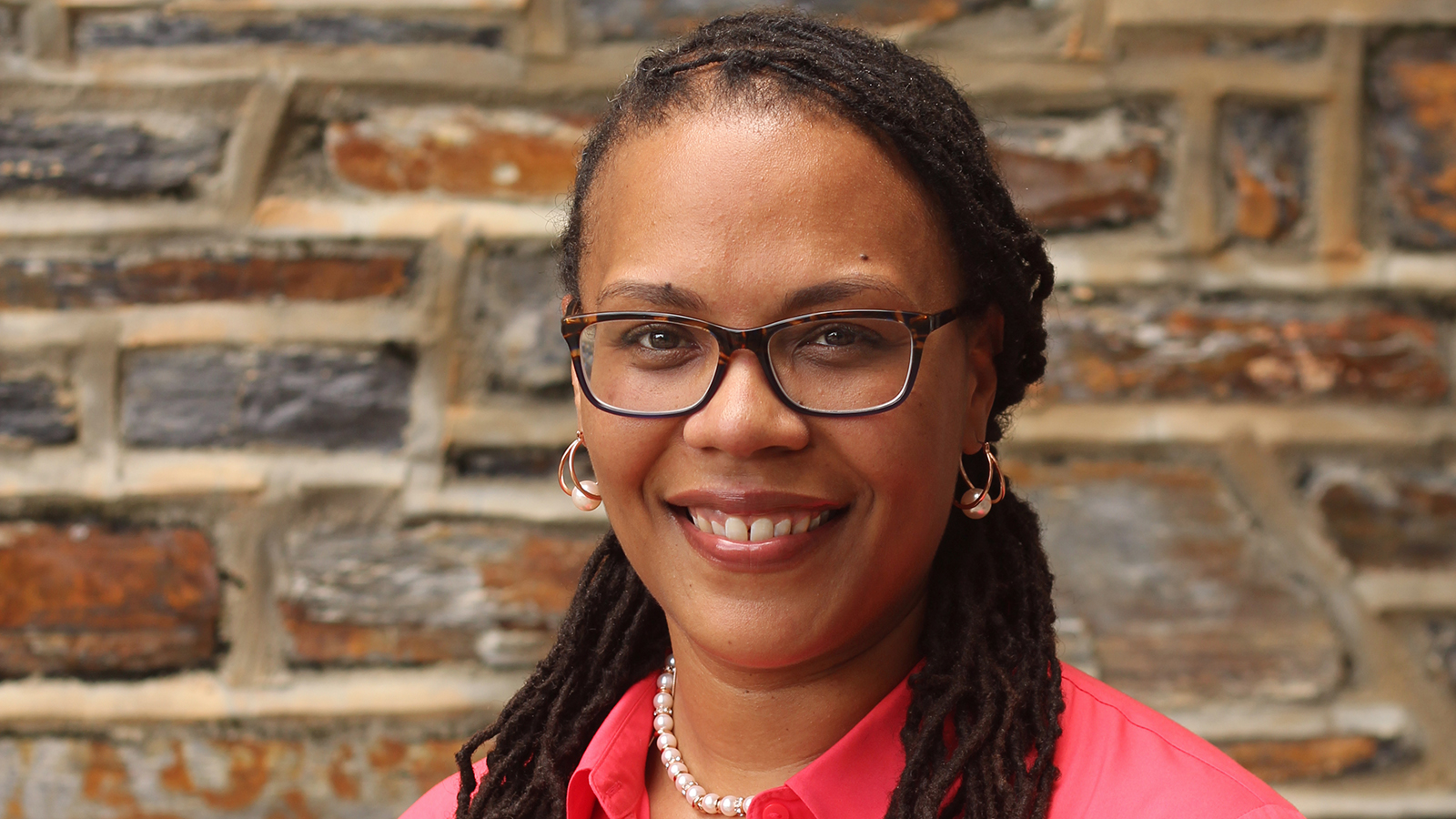Adrienne Stiff-Roberts: 2021 Distinguished Service Award
Adrienne Stiff-Roberts's impact over nearly 20 years can be felt throughout every corner of the school and even into the surrounding community

When Adrienne Stiff-Roberts, the Jeffrey N. Vinik Professor of Electrical and Computer Engineering, joined Duke Engineering’s faculty in 2004, the school looked very different. The Fitzpatrick Center had barely opened, Duke’s expertise in materials science was scattered and without a cohesive vision, and there were no Black full professors on the faculty.
Now, almost two decades later, much of that has changed thanks to Stiff-Roberts’s vision and leadership. What hasn’t changed, however, is the supportive environment created by the administration that initially drew her to the school—and the students.
“First and foremost, what has kept me here for nearly 20 years are the incredible students I have been able to work with at Duke, whether as an instructor, an academic advisor, a research mentor or an outreach mentor,” Stiff-Roberts said. “Duke undergraduate and graduate students in the Pratt School of Engineering are eager, sincere, motivated and hard-working. It makes my job a pleasure.”
Stiff-Roberts earned her undergraduate degree in electrical engineering from the Georgia Institute of Technology before getting both her master’s in electrical engineering and PhD in applied physics from the University of Michigan and a PhD in physics from Spelman College. After finishing her doctoral work, she immediately joined Duke Engineering’s faculty.
In the laboratory, Stiff-Roberts’s research explores thin-film deposition of semiconductor materials for optoelectronic devices, such as solar cells and light emitting diodes. But her impact can be felt throughout every corner of the school and even into the surrounding community.
Looking to make materials science more accessible to students and faculty working in disparate fields, Stiff-Roberts worked with a group of faculty from multiple departments in both Pratt and Trinity to create the University Program in Materials Science and Engineering. The graduate program, she says, helps to acknowledge the multi-disciplinary nature of materials science and engineering across campus, providing an opportunity to elevate the status of this research area at Duke. It also provides a nexus for a vibrant community of researchers that is sustained by the Duke Materials Initiative led by Stefan Zauscher, professor of mechanical engineering and materials science.
The overall goal of the program, she says, is to provide an entryway to materials science and engineering across campus, such that students can experience a core curriculum as a cohort but fan out across campus to pursue specific research interests. “I hope to see sustained growth of the MS and PhD programs, as we are about half-way to reaching our goals,” Stiff-Roberts said. “I also hope to see an even distribution of graduate student research projects across all of the participating departments.”
Off campus, Stiff-Roberts founded and runs the Student Engineers Network: Strengthening Opportunities in Research (SENSOR) Saturday Academy for 8th and 9th graders in Durham Public Schools. Since 2007, the program has served over 125 budding scientists.
“Over this time, the most rewarding aspect has been seeing what the students do after graduating from high school,” Stiff-Roberts said. “Many of them go on to college in STEM fields, and I look forward to seeing all that they accomplish.”
During her time at Duke Engineering, Stiff-Roberts says that the biggest change she has seen might be the growth of the faculty and research enterprise. As a school, she says, Pratt’s research contributions have become a significant component of research at Duke overall, which speaks tremendously of the faculty efforts within the school. The other big change she has seen for the better is the First-Year Design course for undergraduates, which has been an excellent addition to the curriculum to engage students in the engineering design process as soon as possible to help them sustain their motivation to pursue engineering degrees.
Moving forward, Stiff-Roberts hopes to pick her SENSOR Academy back up to its pre-pandemic levels and expand its reach beyond what she can accomplish as an individual while helping Duke’s materials science initiatives grow. She also hopes to help the school continue to tear down the barriers that she first broke through.
“One of the biggest challenges still facing Duke Engineering is to improve the diversity of the student, faculty and staff populations, as well as the climate for underrepresented populations within the school,” Stiff-Roberts said. “Pratt has taken steps toward corrective action, as has the entire university, and I hope to see sustained efforts to make a significant and lasting difference to improve the lived experiences for everyone on campus.”
